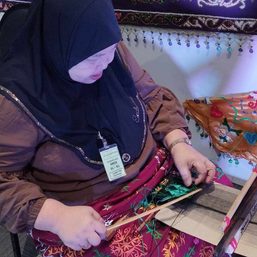SUMMARY
This is AI generated summarization, which may have errors. For context, always refer to the full article.
BRUSSELS, Belgium – EU foreign policy chief Catherine Ashton has summoned the bloc’s foreign ministers for emergency talks on Ukraine on Thursday, February 20, amid strident calls across Europe for sanctions against Kiev.
As European Union leaders voiced outrage over the escalating violence in Ukraine, Ashton said in a statement Wednesday, February 19, that the 28-nation bloc finally would consider sanctions against those deemed responsible.
“All possible options will be explored, including restrictive measures against those responsible for repression and human rights violations,” she said in a statement.
Until the bloody upsurge in violence in Kiev on Tuesday, February 18, which left at least 25 people dead, EU nations had resisted US calls for reprisal measures, preferring to keep channels of communication open with embattled President Viktor Yanukovych.
But as leaders in Europe said Yanukovych had “blood on his hands” three, Ashton convened an extraordinary meeting of EU foreign ministers at 2 pm (1300 GMT) on Thursday.
The EU’s political and security committee went into closed door talks in Brussels at 1000 GMT on Wednesday to thrash out a consensus on action on Ukraine ahead of the ministers’ get-together.
French President Francois Hollande has called for the European to impose targeted sanctions by Thursday, his office said.
European Commission president Jose Manuel Barroso said he was watching the latest events unfold with “shock and utter dismay”.

“There are no circumstances that can legitimise or justify such scenes,” he said. “It is the political leadership of the country that has a responsibility to ensure the necessary protection of fundamental rights and freedoms.”
While the EU had worked hard to facilitate dialogue between the authorities and protesters, and continued to see political reform as the sole way out of the crisis, it now expected “targeted measures against those responsible for violence … as a matter of urgency,” he said.
The EU had been divided in the last weeks over calls for sanctions, such as asset freezes or visa bans, with some countries fearing the political risks, said Belgian Foreign Minister Didier Reynders.
“There is no unanimity on sanctions, with several of Ukraine’s neighbours fearful that this would risk pushing the regime to even tougher action against the opposition.”
In Poland, however, Prime Minister Donald Tusk said he would call on other EU leaders to agree “sanctions that would strongly affect the authors of the Ukrainian drama, personal and financial sanctions.
“Now is the time,” Tusk said in an address to parliament. “The victims need it.”
Germany blamed Yanukovych’s refusal to enter serious dialogue for the escalation of violence in the three-month-old standoff.
“Everyone must know that violence is no solution and only makes everything much worse. Ukraine has paid dearly for the delaying tactics of President Yanukovych,” said Foreign Minister Frank-Walter Steinmeier.
“His refusal to hold serious talks about a peaceful conflict resolution and constitutional reform is a big mistake.” – Rappler.com
Add a comment
How does this make you feel?





There are no comments yet. Add your comment to start the conversation.